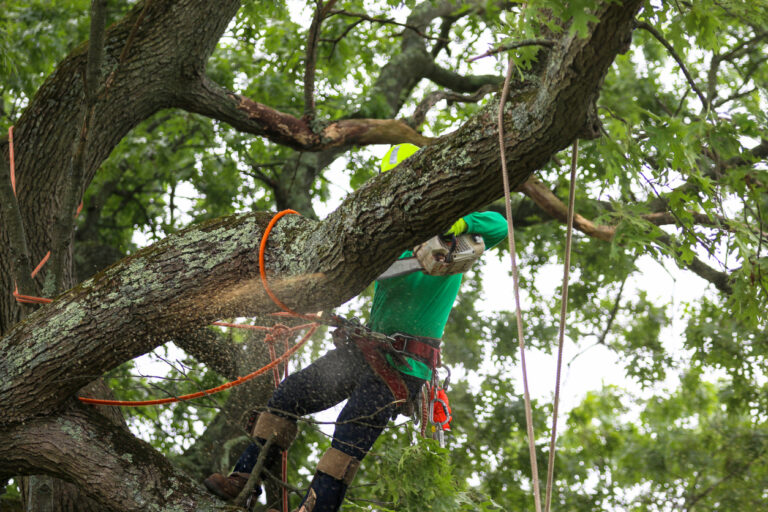Certain trees may look pretty in your garden – but they could be quietly causing damage to your property, pose a danger during storms or lead to rat infestations.
Tree surgeon David McCann, the owner of Bermuda Arborist, said invasive species have increasingly spread across the island in recent years.
“I’ve noticed an influx of new homeowners lately who have inherited old problems from old properties and we are helping them out,” Mr McCann said.
“A lot of them are to do with invasive species that have taken over Bermuda really. A lot of problems are related to trees like casuarinas, which grow very tall quickly and have very shallow root systems.
“We have lots of trees like Mexican peppers that colonise an area. They won’t let anything else grow underneath them. Once they get a foothold, it’s an issue for homeowners.”
Scheffleras, an Australian species commonly known as umbrella trees, are popular with many homeowners in Bermuda.
But Mr McCann said: “They have crazy root systems. I have found their roots in a water tank, and followed the root, and the tree is over 100 feet away.
“The roots tap into septic systems and water tanks and cause a lot of damage to walls and driveways. That’s something to consider.”
Invasive trees are often not able to withstand high winds, which can create hazards during heavy storms.
“Lots of trees can get tall in America where there isn’t the same high winds. But in Bermuda they need to be kept short,” Mr McCann said.
“Casuarinas especially have very shallow root systems and they tend to topple over very easily. Their root systems are only two or three feet deep, and they get even 150 feet tall in certain situations. They really need to be kept short.
“Norfolk pine trees and Cook’s Island pine trees get very tall, up to 200 feet. They tend to snap when high winds come so the whole top of the tree will go flying. They also shed their branches in high winds – they go shooting off like javelins. I have seen them go through car roofs and right through slate roofs in Bermuda.”
You also have to be careful with your trees for liability reasons.
“If your trees keep coming down on powerlines, eventually you are going to be held accountable, especially if your whole neighbourhood loses power,” Mr McCann said.
“You’re not going to make friends. Everyone’s looking at your trees every time there’s a strong wind. Sometimes when they come down, you can be held liable.”
Then there’s the rat infestations.
“The rats love the berries on the Chinese fan palms,” Mr McCann said.
“They make their nests from the fibres in the leaves. Water collects in the base, so they have food, water and shelter. It’s like a five-star hotel in the Chinese fan palm canopy for rats. If you have a whole row of them, you can imagine the rat population multiplies very quickly.”
If you don’t want to remove the whole Chinese fan palm, you should get it pruned so that it doesn’t have thousands of berries.
Homeowners can do their part to discourage invasive trees by planting their own fruit trees – and Bermuda Arborist can help look after them.
“If you can control your own area, your own garden, it’s a big help for the rest of the community,” Mr McCann said.
“We see a lot more people getting rid of these invasive species and now planting fruit trees, whether it’s citrus, avocados, mangos, peaches, everything. We come by every every three months and care for them, look out for pests and keep them fertilised.”

